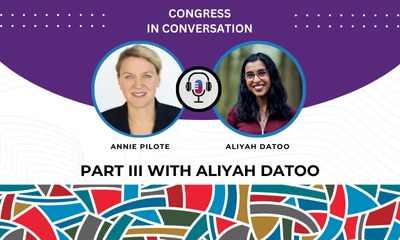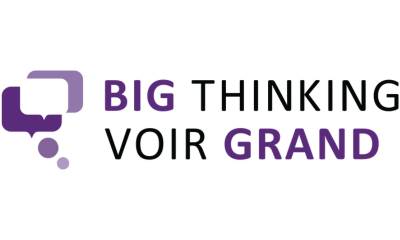REGINA, May 29, 2018 – Researchers look at free speech on university campuses, trigger warnings in the classroom, and teaching in the wake of #MeToo, all as part of the Congress of the Humanities and Social Sciences. Canada’s largest academic gathering, Congress brings over 5,000 of the country’s brightest researchers, thinkers, and policy-makers to the University of Regina this week.
Unique to Canada and often called the “Academic Olympics,” Congress is great fodder for journalists looking for fresh research stories in the humanities and social sciences.
All of these researchers are on the University of Regina campus this week. Highlights in research in the fields of education include:
Emails with My Dad, or What the hell has happened to free speech in universities? Conversations about free speech on university campuses have been receiving an unprecedented level of mainstream media coverage. This presentation thinks through what it would look like to make the work of the university more public, and whether that might fight against the disinformation of extremist positions.
Trigger‐Shy: Opposing A Singular Model of Trauma, Embracing an Ethos of Care: Trigger warnings have been a hot‐button issue in higher education in recent years. This presentation suggests that part of the anxiety around safe spaces and trigger warnings in the classroom is not just about a fear of censorship, but about not being able to predict what may or may not be difficult for students.
Courting Change on the Field: Lessons from the “Take a Knee” Movement about Pop Culture’s Potential for Critical Public Pedagogy: The movement emerged among sports stars in the US in summer 2016. This research explores it as a form of adult education and learning, including the successes and limitations to celebrity-led social movements.
Resignation is a Feminist Issue: Sara Ahmed, Critical University Studies, and Institutional Abuse: Harassment, bullying, and discrimination in academic contexts are receiving enhanced scrutiny in the wake of the #MeToo movement and high‐profile disclosures of faculty misconduct at Canadian institutions. Drawing on her own experience of resignation in the wake of harassment, this researcher considers how human rights tribunals and other fora offer a more feminist approach to pursue rights‐based and discrimination claims compared to universities themselves.
Destabilizing the Film Canons of “Old Dinosaurs”: Teaching Film History in a Post‐Weinstein Era: In the wake of the Weinstein scandal and #MeToo, traditional film canons must be destabilized. From an educator’s perspective, the lack of female representation in film canons sends a negative gendered message to film students, especially female or trans student. How can film educators create more diverse and inclusive canons without resorting to tokenism or ghettoization?
Congress is an annual gathering of more than 65 scholarly associations, each holding their annual conference under one umbrella. This year’s theme is “Gathering Diversities”, reflecting the history of Regina as a traditional place of gathering and rich buffalo hunting grounds for Plains cultures.
Congress is open to the public. More information about the Federation and Congress 2018 is available online through their website, Twitter and Facebook.
-30-
For interview requests
Federation for the Humanities and Social Sciences
Nicola Katz
Manager of Communications
nkatz@ideas-idees.ca
Cell: 613-282-3489
University of Regina
Dale Johnson
Communications Strategist
dale.johnson@uregina.ca
Cell: 306-531-5995
About the Congress of the Humanities and Social Sciences
Organized by the Federation for the Humanities and Social Sciences, Congress is the largest interdisciplinary conference in Canada, and one of the largest in the world. Now in its 87th year, Congress brings together academic associations that represent a rich spectrum of disciplines in the humanities and social sciences, including literature, history, theatre, film studies, education, music, sociology, geography, social work and many others. Congress 2018 is hosted by the University of Regina. For more information, visit www.congress2018.ca.
About the Federation for the Humanities and Social Sciences
The Federation for the Humanities and Social Sciences promotes research and teaching for the advancement of an inclusive, democratic and prosperous society. With a membership now comprising over 160 universities, colleges and scholarly associations, the Federation represents a diverse community of 91,000 researchers and graduate students across Canada. The Federation organizes Canada’s largest academic gathering, the annual Congress of the Humanities and Social Sciences. For more information about the Federation, visit www.ideas-idees.ca.
About the University of Regina
The University of Regina is constantly pushing the bounds of knowledge and pioneering new ways of thinking about the world. It’s no surprise that the University is ranked in the Top 200 by Times Higher Education in the Best Young Universities category. At the heart of its success is the institution’s commitment to growing diversity. Since 2009, it has increased its international student population by 122 percent and its Indigenous student population by 84 percent. The University of Regina is home to the country’s highest percentage of graduate students from outside Canada, and has received the top ranking in Canada for its number of international research collaborations. For more information about the University of Regina, visit www.uregina.ca.

Bringing communities together
By Dr. Margrit Talpalaru, professor & Academic Convenor for Congress 2025 at George Brown College George Brown College (GBC) is the first college to host the Congress of the Humanities and Social Sciences in its 94 years: this has emerged as the...

Congress in Conversation - Part III with Aliyah Datoo
← Big Thinking Podcast homepage Introduction | About the guest | Aliyah Datoo's Research at Congress | Transcript | Follow us Introduction Welcome to Congress in Conversation, a special series presented by the Big Thinking Podcast in partnership...

Sustaining political community
Big Thinking at Congress 2024 In the face of rising threats to democracy, what can be done to promote sustainable political community? Join us for a thought-provoking discussion on political polarization, social injustice, and the spread of...
